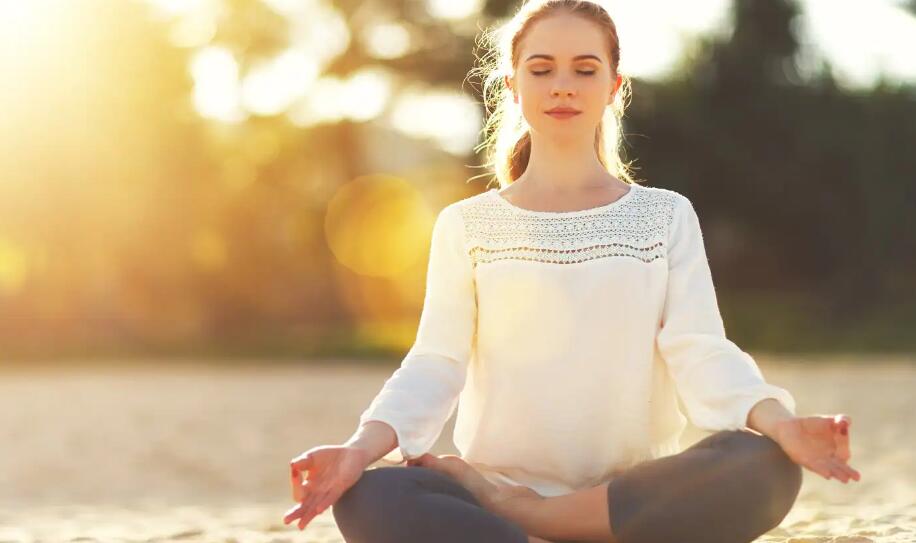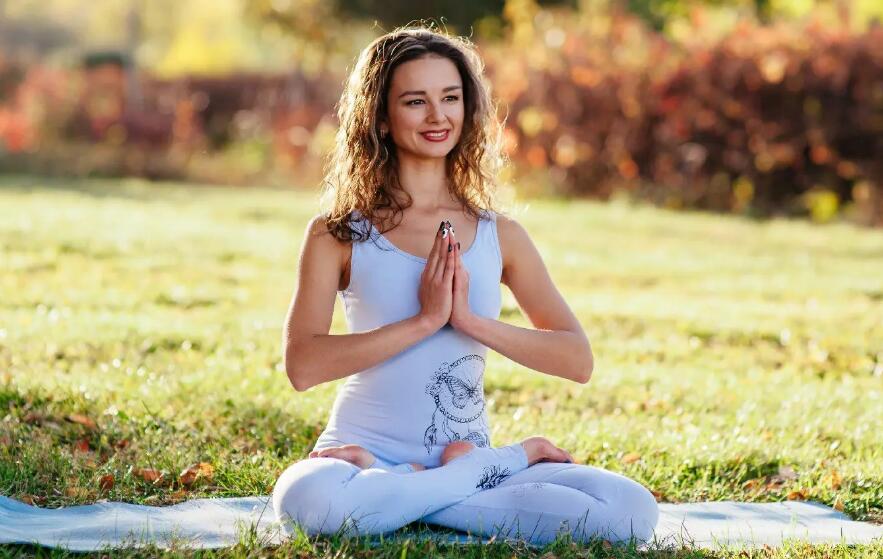It’s a common conundrum: you’re feeling bloated and sluggish after a big meal, but the last thing you want to do is move.
You may have heard that it’s best to meditate on an empty stomach. After all, food takes energy to digest, and when you’re trying to achieve a state of deep relaxation, you don’t want your body to be preoccupied with the process of digestion.
But what if you’re just really hungry and the only time you can squeeze in a meditation session is right after lunch? Is it still possible to meditate or should you try to wait it out until your next meal break?
Two Opinions about if You Should Mediate After a Meal

Opinion 1: You can mediation after a meal
However, research suggests that there may be benefits to mediation after eating.
One study found that participants who meditated for 15 minutes after eating experienced reduced bloating and improved digestion.
Additionally, mediation can help increase mindfulness and reduce stress, which can contribute to better digestive health.
So next time you’re feeling stuffed, try taking a few minutes to sit in silence and see if it helps your digestive woes.
Opinion 2: You shouldn’t mediate after a meal
- 1. It’s tough to sit still when you’re feeling full.
- 2. It can lead to indigestion and uncomfortable bloating.
- 3. Digestion requires a lot of energy, which can make you feel sleepy.
If you can’t wait to meditate until after your next meal, you can do a few things to make the experience more comfortable.
First, try not to eat a very large meal. A light snack or moderate-sized meal will be much easier to digest than a huge one.
Second, sit up straight in order to help prevent indigestion and discomfort.
And finally, try not to focus on achieving deep relaxation during your meditation; instead, focus on simply being present and observing your thoughts and feelings without judgment.
Who knows, you might just find yourself feeling more relaxed and rejuvenated afterwards.
What Happens If You Meditate With Full Stomach?
There are different schools of thought when it comes to meditating on a full stomach.
Some people believe that it’s best to do so on an empty stomach, while others believe that it’s fine to meditate after eating a meal.
There is no right or wrong answer—it ultimately comes down to personal preference.
That being said, there are some things to keep in mind if you do decide to meditate with a full stomach.
For one, it’s important to choose the right foods. Heavy, greasy, or spicy dishes can increase acidity levels and contribute to heartburn or indigestion—neither of which are conducive to meditation.
Instead, opt for lighter fare such as fruits and vegetables, lean proteins, whole grains, and healthy fats.
It’s also important to give yourself enough time to digest before meditating. If you eat a large meal, it’s best to wait at least two hours before getting into your Meditation Pose.
If you eat a smaller meal or snack, give yourself at least 30 minutes to digest before starting your session.
And last but not least, be sure to choose the right Meditation Pose for you. If you have trouble sitting upright with a straight spine for long periods of time, consider lying down on your back instead.
Just be sure that your head is supported so that you don’t end up falling asleep!
Is It Better To Meditate Before Or After Eating?

There is no one answer to this question as it depends on individual circumstances and preferences.
Some people find that they are more able to relax and focus if they meditate after eating, while others find that they are better able to empty their minds if they meditate on an empty stomach.
If you are new to meditation, it is worth trying both options to see which works better for you.
If you tend to feel sleepy after eating, it is probably best to meditate before eating. On the other hand, if you find your mind wandering when you try to meditate on an empty stomach, it may be better to eat first and then meditate when your energy levels are higher.
There is no right or wrong answer – ultimately, it is up to you to experiment and see what works best for you.
If you have the time and opportunity, it can be useful to meditate at different times of the day to see how your body and mind respond at different times.
Should You Meditate On An Empty Stomach?
When you think of meditation, you might picture a monk sitting cross-legged on a mountainside or a yoga class where everyone is sitting quietly with their eyes closed.
But what about eating and meditation? Should you meditate on an empty stomach?
The Pros of Meditating on an Empty Stomach
There are a few key benefits to meditating on an empty stomach. First, when you haven’t eaten recently, your blood sugar is likely to be low.
This can lead to increased feelings of calm and relaxation, which can be helpful in the mediation process.
Second, fasting before mediation can help increase your concentration and focus.
And finally, if you’re new to meditation, it’s generally easier to learn how to meditate when your stomach isn’t growling or distracting you with thoughts of food.
The Cons of Meditating on an Empty Stomach
Of course, there are also a few potential drawbacks to consider before deciding to fast before your next meditation session.
For example, if you have low blood sugar, you may experience symptoms like lightheadedness or dizziness while trying to meditate.
Additionally, if you’re used to eating regular meals throughout the day, going without food for several hours can lead to feelings of irritability or crankiness.
If you’re new to meditation, fasting beforehand can help improve your focus and concentration.
However, if you have low blood sugar or normally eat three meals a day, it’s probably best to eat something before meditating.
The best way to figure out what works for you is to experiment and see what makes it easier for you to maintain focus during your mediation practice.
What If I Feel Hungry During Meditation?

If you find yourself feeling hungry during meditation, there are a few things you can do.
First, try drinking some water. Sometimes when we think we are hungry, our bodies are actually just dehydrated. If drinking water does not seem to help, then gently eat a small snack such as an apple or some carrots sticks.
Avoid anything too sugary or salty as these foods will likely make you feel more agitated rather than calm.
Lastly, if all else fails, simply end your meditation session early and grab something to eat. The most important thing is that you listen to your body and do what feels best for you in the moment.
Note: What to eat before and after yoga and meditation?
How Soon Is Too Soon To Meditate After Eating?
You’ve probably heard that it’s important to meditate on a full stomach. And while it’s true that you don’t want your meditation practice to be interrupted by hunger pangs, there is such a thing as meditating too soon after eating.
So how much time should you realistically leave between eating and meditating? Let’s take a look.
The reason you don’t want to meditate immediately after eating is because the process of digestion requires a lot of energy.
In fact, according to one study, the average person expends about 10% of their daily energy on digesting food.
That might not sound like much, but it starts to add up when you consider that most people only have about 100 calories worth of energy to expend in a day.
Digestion is a complex process that involves the breakdown of food by enzymes in the stomach, absorption of nutrients in the small intestine, and elimination of waste in the large intestine.
All of this takes energy and blood flow away from other parts of the body, including the brain.
So how long should you wait to meditate after eating? It depends on how big of a meal you’ve just eaten.
A light snack like an apple or a bowl of yogurt can be digested in as little as 30 minutes, so there’s no need to wait more than an hour after eating before meditating.
A more substantial meal like pasta or chicken can take up to four hours to fully digest, so it’s best to wait at least four hours after eating before sitting down to meditate.
Of course, these are just guidelines and everyone is different, so it’s always best to listen to your body and see what feels comfortable for you.
Conclusion
All in all, it’s generally best to meditate on an empty stomach. However, if you find yourself feeling hungry and the only time you have for meditation is right after eating, there are a few things you can do to make the experience more comfortable.
Just remember to keep it light, sit up straight, and focus on simply being present rather than achieving deep relaxation.
